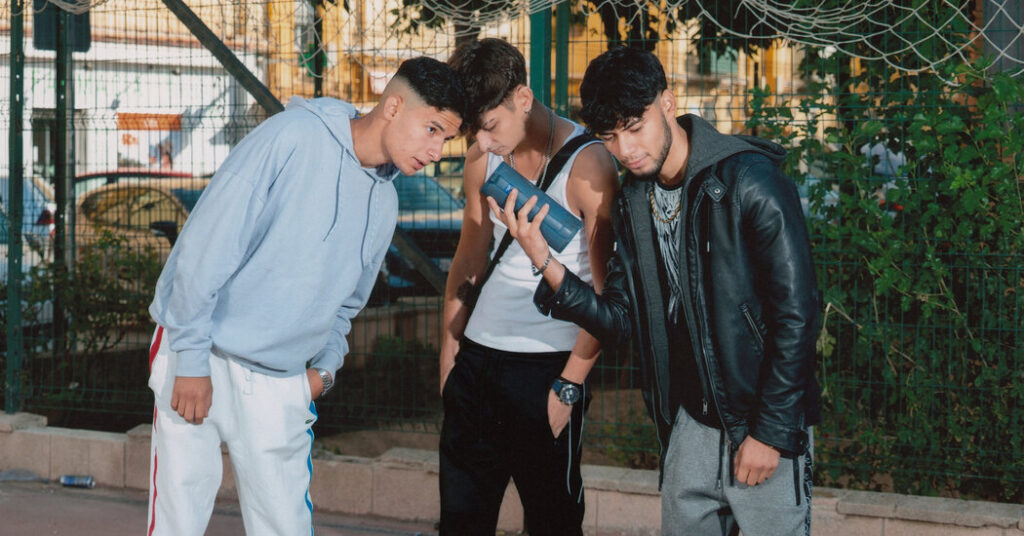La Barzola, a neighborhood in Seville, Spain, is home to a diverse population of working-class families, many of them immigrants, with the pulse of community and creative resistance running through their veins. The heart of the barrio is the Plaza Manuel Garrido, a public park and social nexus. And within this space is a basketball court that a group of aspiring rappers call their own.
Hip-hop was born 50 years ago from the rubble of urban distress in the Bronx, an act of resistance and self-expression by society’s most vulnerable. Today, the music is everywhere: a multi-billion-dollar ecosystem. But it also remains a deeply personal form of expression, including for the young men in this community.
“Whatever pain, anger or frustrations we harbor from our everyday experiences, music allows us to excavate those things and make something useful out of it,” Zakaria Mourachid, 21, who makes music under the name Zaca 3K, said. “We take our anger out on the music. We turn our tears into rhymes, because it makes us feel free in a world that creates barriers around us everyday.”
Just like the originators of hip-hop, the rappers of this collective ground their material in their personal narratives.
“Overcoming immigration, overcoming having to leave one’s country of origin, overcoming being separated from our families and overcoming the loss of those we meet who may or may not continue the journey with us.”

“We do not attach value to frontiers, flags, race or social status,” said Zakaria, who migrated from Morocco to Seville by boat at 17. “We believe only in one’s authenticity, humanity and integrity.”

Luis Rodríguez Collado, at right, the youngest of the group, grew up in Spain, the child of Mexican immigrants. “We aren’t just emoting with language, but with song and dance, with sounds and rhythm,” said Luis, a.k.a. Luis 3K. “At 19, I sincerely don’t know anything more liberating than this.”


